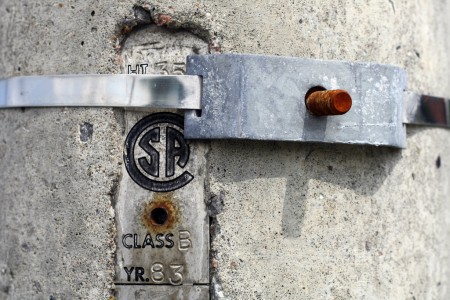Apparently, the Conservative government has ordered Canada’s diplomats to stop using the terms ‘child soldier’ and ‘international humanitarian law.’ I heard about it on CBC’s The Current before leaving for work today, and it doesn’t seem to have been picked up much by the mainstream press. Apparently, “gender equality” is also on the chopping block. The changes may have been partly motivated by the continuing saga of Omar Khadr.
The basic points made by those interviewed on The Current are sound ones: that this is an underhanded way to effect foreign policy changes, especially given how the Conservative platform in the last election basically ignored that area of policy-making. Also, the changes run against Canada’s tradition of advocating the humanitarian side of international law, including through the efforts of the Mulroney government to address some of the issues involving children in war situations.
If this government wants to take a public position to back away from international humanitarian law and the protection of children exploited in wartime, they are within their rights to do so. Trying to do it by stealth, however, is a disservice to Canada’s internationalist traditions, its civil servants in the foreign service, and the Canadian public. Developments in areas like the prosecution of war criminals are among the most significant and positive in the recent history of international relations. It would be a shame if Canada took up an obstructionist position (either openly or covertly), especially at a time when the new American administration might be able to soften the rejectionist American stance on institutions like the International Criminal Court.


26/08/09: Language & Canada’s Foreign Service
The Federal Government has removed phrases including “child soldier” and “humanitarian law” from Canada’s Foreign Service vocabulary. Today on the podcast, we ask why and what it means in the context of Ottawa’s decision to appeal a court ruling ordering the government to press for Omar Khadr’s release from Guantanamo Bay.
Right click to Download 26/08/09: Language & Canada’s Foreign Service
[mp3 file: runs 19:25]
This seems like a good place where the Liberals can differentiate themselves from the ruling party in the next election. Also, it puts a ring of truth in Chretian’s simplistic characterisations of Harper as Bush.
Children in Armed Conflict?
A dear friend pointed me in the direction of a recent installment of The Current which began: “”Canada’s Foreign Affairs department has banned the use of the phrase ‘child soldiers.’ Currently, they will now be simply known as ‘teen terrorists.’”
I then listened on to discover that “my” Government has removed the words “child soldiers” and “international humanitarian law” from its vernacular, to be replaced with “children in armed conflict” and “international law.” Additional articles can also be found on the CBC website, and in the Embassy Magazine.
I am not impressed. Below is the letter I wrote to Minister of Foreign Affairs Lawrence Cannon, telling him so.
Canada granted Guantanamo appeal
Canada’s highest court has agreed to allow the government to appeal against a ruling ordering it to seek the return of a Canadian from Guantanamo Bay.
The Supreme Court ruling imposes a stay on the earlier order until Ottawa’s appeal is heard on 13 November.
Omar Khadr, 22, has been held at the US detention facility over the killing of a US soldier in Afghanistan in 2002 when he was 15, a charge he denies.
“When Attorney General Eric Holder announced last fall that he planned to try Khalid Sheikh Mohammed in a civilian court in New York, he was met with a firestorm of abuse. Despite the fact that hundreds of terror suspects have been tried and convicted in U.S. courts, the administration’s Republican opponents spun out a thousand reasons for treating Mohammed differently: His trial would create a target in New York City that would cost millions of dollars for security measures; he would use the proceedings to spread jihadist propaganda; he shouldn’t be entitled to the constitutional rights and protections afforded U.S. citizens. In short, KSM became the poster boy for the man too dangerous for the law. In March, the White House indicated that a decision on Mohammed’s trial was just weeks away. Months later, the administration is still mulling.
But instead of subjecting the so-called “worst of the worst” to a military tribunal, this past week the Obama administration fired up the tribunal system to try Omar Khadr, a child soldier. Khadr’s defense counsel, Jon Jackson, collapsed Thursday while questioning a witness and was airlifted back to the United States for treatment. There will be at least a 30-day delay in the proceedings. Maybe we can use this small break to look again at what Guantanamo has become and to acknowledge that Omar Khadr represents everything we shouldn’t be trying before a secretive military commission.
At 23, Khadr is the youngest detainee of the 176 remaining prisoners at Guantanamo Bay. He’s been there for eight years—one-third of his life. Born in Toronto, he is the only Westerner there. Khadr is charged with being an “unlawful enemy combatant” (later changed to “unprivileged enemy belligerent”) for allegedly throwing the grenade that killed Special Forces Sgt. Christopher Speer in Afghanistan in July 2002. Khadr was 15 at the time.
As a U.N. envoy who condemned the trial this week noted, no child has been prosecuted for a war crime since World War II. Under international law, children captured in combat are to be treated as victims, not soldiers, and their captors are meant to rehabilitate and repatriate them. There’s also a question as to why someone who allegedly committed acts of war against a military invader has been classified as a war criminal and terrorist. Finally, there’s the question of physical abuse: Khadr’s attorneys say the prosecutors have relied on confessions extracted after Khadr was coerced, abused, and threatened with gang rape by military interrogators. Last week, the military judge in the case ruled that Khadr’s statements were admissible, and they make up the bulk of the evidence against him. “